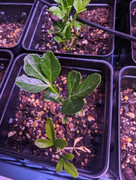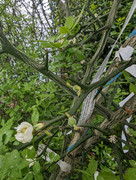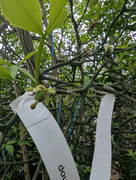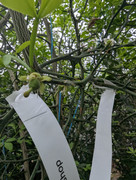101
Cold Hardy Citrus / Re: US-1279 and SuperSour 2, new and better zygotic parents for cold hardy breeding?
« on: May 18, 2023, 11:16:26 AM »
The objective is to find highly, or totally zygotic selections as seed parents. Pollen donor parents may be either zygotic, or nucellar. In the pursuit of advanced generation breeding selections, having zygotic breeding lines provides greater flexibility, as any desirable selection can serve as a seed parent.






























